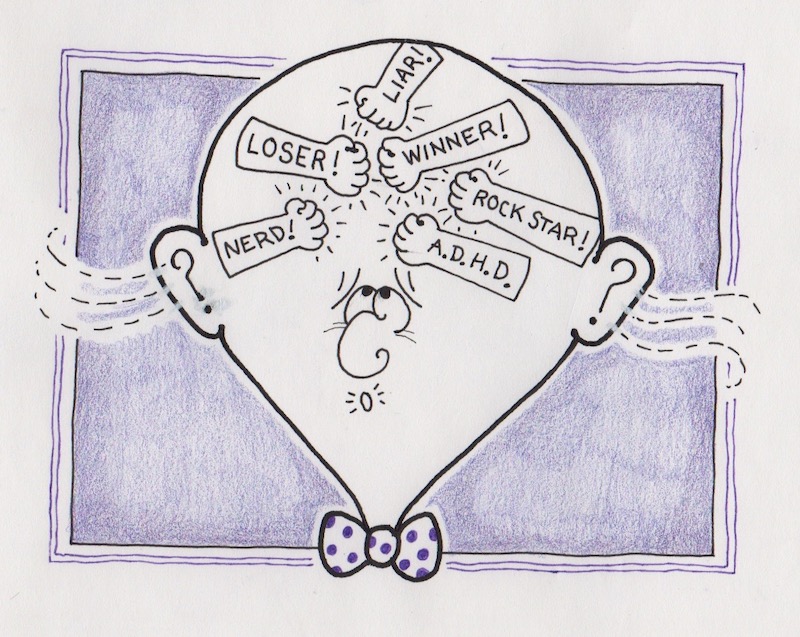Sticks and Stones
"Sticks and stones may break my bones, but names can never hurt me."
Oh, baloney. Names are lethal weapons, because they're made of words. This old playground proverb is a lie because sticks, stones, bullets, and knives, only exist because of words.
Everything begins with words - not one made thing came into being without an origin in someone's words. Ask the Patent Office. And I'd add that all of Creation came into being because of God's words, so we've just encompassed everything, everywhere. We are surrounded by the results of someone's words. It behooves us not to become casualties in the War of Words.
How do we fight a Word War? Just knowing there's a battle is half the war. Our mind is the battlefield; our soul is the potential prisoner of war. Words are bullets. A strategic tactic is to pluck each bullet from the air, like Neo in The Matrix, and examine it with an eye to whether or not it belongs in the mind.
We do well to be cautious when paying attention to words said about us. The bill for paying that kind of attention is high, because we give those words a ticket to attend a concert in our head. Then they take over the concert stage and become the soundtrack of our lives. Like movie music, the action and the soundtrack tend to correspond.
Words spoken by authority figures carry weight. We all know people - maybe we are one - whose life is like a movie with a title made from parent's words: "You'll Never Amount to Anything!" or "Should've Been a Boy!" or "You are the Apple of My Eye." A child can spend a lifetime living down or living up to words spoken over them.
Such loving, or casual, or malicious, or merely mis-spoken words can act as carrots or sticks, and of course they aren't all bad. But just as we can be beaten off-track with sticks, we can be led astray by carrots, if they don't fit our individual heart and life, with who God made us to be. A dad may have praised and encouraged the sports prowess of a son destined to be an astrophysicist. That kind of thing.
This is a war, and there are battle tactics, some additive (taping Scripture to your mirror or fridge or dashboard); some subtractive (wearing earplugs to avoid TV news in the doctor's office). Example: I give myself permission to ignore certain thoughts categorically, as a matter of policy. I deal with accusatory words, which I used to feel honor-bound to consider, (because how could I grow /improve /change if I ignored them?) by dismissing them.
My new policy works better: stomp any thought that begins, for instance: "Mary, you idiot..." I get better results from the construction, "Mary, dear - where do you suppose you left your car keys?" This actually helps. I like what Bill Johnson says (rough quote): "I can't afford any thought about myself that isn't what God thinks about me." Which entirely rules out "Mary, you idiot." God may reprove, but He doesn't accuse.
That's a tactic, a battle plan. But tactics have their limits; rules beg to be broken, notes can fall under the fridge.
It's easy to love rules and strategies. But policies and rules, even good ones, can drown out the voice of the Spirit. (John Eldredge warns against "the Christianity of tips and techniques.") The Spirit's voice is the voice of Truth. Policies and tactics are the province of my mind, but Truth is the province of the heart. The evidence of enemy words can be a sinking sensation in the tummy - a flinch or a wince - clenched fists. Sometimes my body is more in tune with Truth than my brain. I do well to pay attention to this voice, which is sometimes still and small. Cultivate a quiet heart and a listening ear.
The words God speaks about us are words to cherish in war time. The Bible is full of them, but a needed word can drop from a billboard or a popular song. And sometimes He speaks to us directly. These are words I wrap in satin, to bring out when I crave encouragement. We each need to curate our own cache of words to wage the War.
The War of Words is a war for your soul. The battle is to believe that your thoughts are important, because you are. Your identity is on the line. It matters whether or not you indulge in self-aggrandizement or self-pity or self-flagellation, because you are important. We need you in this war, you are here for a reason, and if you're word-wounded, stuck in a corner, sucking your metaphorical thumb, you're out of the action. If you think you are too insignificant to fight for yourself, we all lose what only you can contribute. We none of us have the luxury of thinking we don't matter.
I'm thankful for this community of folks who care about words. Thanks for reading!
Click here to subscribe.
